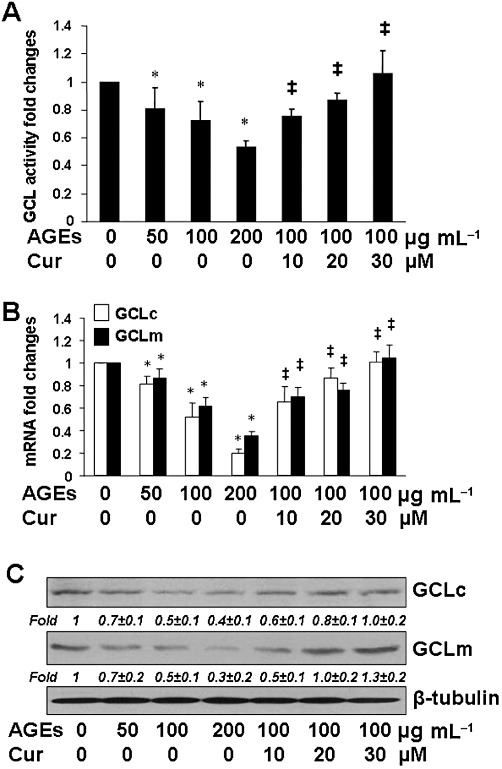Figure 8.

AGEs dose-dependently reduced GCL activity and inhibited expression of GCL genes in HSCs in vitro, which were eliminated by curcumin. Serum-deprived HSCs were treated with AGEs at indicated doses in the presence or absence of curcumin at various concentrations in serum-depleted media for 24 h. *P < 0.05, versus untreated control cells (the corresponding first column); ‡P < 0.05, versus cells treated with AGEs at 100 µg·mL−1 (the corresponding third column). (A) Analyses of GCL activities. Values are expressed as mean ± SD (n ≥ 6). (B) Real-time PCR analyses. Values are presented as mRNA fold changes (mean ± SD, n ≥ 3). (C) Western blotting analyses. Representatives were from three independent experiments. β-Tubulin was used as an internal control for equal loading. Italic numbers beneath blots were fold changes (mean ± SD) in the densities of the bands compared with the untreated control in the blot (n = 3), after normalization with the internal invariable control.
